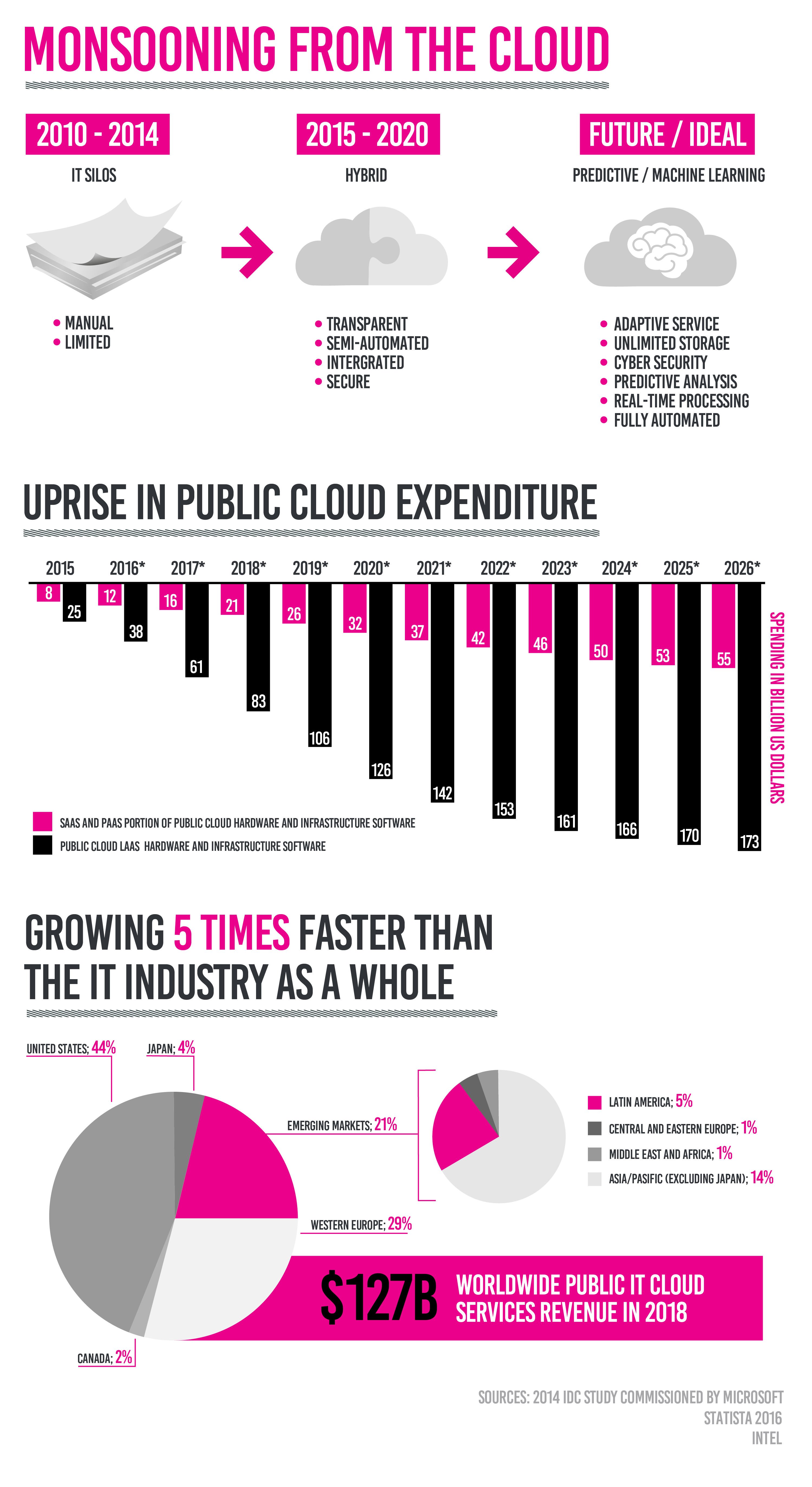![]() 4 minute read
4 minute read
The rise of the cloud already changes the information technology industry. Moreover, the cloud service impacts with a domino effect all the industries like manufacturing, business services, retail, education, and even the way governments are run. So where does the cloud stand now and what is the future of information technology processes?
When Cloud
grows bigger
Information services undergo an evolution to Cloud similarly as the music industry did. At first, music was an object that nobody owned. Later, it became a luxury that only small fraction of people had access to via CDs. And nowadays, everyone with access to the Internet can stream the tune from services like Spotify and iTunes with no limitations.
The same story is with information services and all the data which are being generated with excessive internet usage – Big Data. All the produced data has an enormous potential as long as data engineers do not get lost in it. The process of automated transformation of a bulk of data sets in readable information has already begun. This is a hybrid semi-automated system which eventually will become a predictive deep learning tool with little human effort.
The investments into new Software-as-a-Service (SaaS) and Platform-as-a-Service (PaaS) are expected to grow tremendously especially to Public Cloud services, reaching 172 bln dollars by 2026.

Advanced Cloud
Company challenged by the largest datasets is the one who is going to advance the Cloud services. Indeed, Google is way ahead its competitors when it comes to data handling, storing, analyzing, and development. Google transforms the Big Data analytics, or hybrid-cloud, to deep learning using machine learning. The goal of the company is to achieve the seamless data processing making it available to masses who do not have a data-engineering background but eager to work with data.
Data scientists have been complaining a long time about the time-demanding preparation of Big Data before processing it. It takes up to 80% of the whole analysis time to standardize the text, numbers, images into readable material. Spending more time preparing data than analyzing sounds like a problem that has to be solved in the nearest time. Advanced machine learning can become a superhero in this context.
Google is continuously advancing its speech, image, and sound recognition programs. For example, Google Cloud Vision API can automatically categorize images by its content into thousands of categories. Detecting the race, age, and even mood of a person in the picture is not a problem for Google. Moreover, the program can read the text from the image and translate it into metadata for user.
New level
of automation
Eric Schmidt, chairman of Alphabet, Google’s parent company, has predicted that NoOps (IT processes with no operations) will become mainstream. NoOps, as Forrester report points out, is “the goal of completely automating the deployment, monitoring, and management of applications and the infrastructure on which they run.” Forrester Senior Analyst Glenn O’Donnell, co-author of “Augment DevOps with NoOps” report, says that most operation positions will become unnecessary, while others will evolve towards a more business-oriented focus. NoOps will ease the life of IT companies and researchers promoting the deep learning and advancing the modern society.
As the future comes closer, serverless solutions are being widely introduced to public. Serverless architecture will allow the platform to dynamically and automatically determine and employ the infrastructure to support application. It will save time and effort to build infrastructure allowing to concentrate on the content and functionalities. The example of serverless architecture is Googles’s Youtube, Gmail, and others. The developer’s path from ideation to production will shrink.
What is to pay attention in the growth of Cloud services, it that all technologies require electricity. While industries, companies, and people, are trying to cut their electricity consumption, Cloud energy consumption increases in geometrical progression. However, IT companies are constantly investing in the renewable power solutions.
#Cloud services #Big Data #Google #deep learning #machine learning #NoOps #future trends



